- europages
- >
- COMPANIES - SUPPLIERS - SERVICE PROVIDERS
- >
- precision tubes
Results for
Precision tubes - Import export
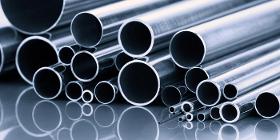
AMETEK SPECIALTY METAL PRODUCTS
United States
316LN (UNS S31653) is a low-carbon, nitrogen-enhanced version of Type 316 molybdenum-bearing austenitic stainless steel. The Type 316 alloys are more resistant to general corrosion and pitting/crevice corrosion than the conventional chromium-nickel austenitic stainless steels such as Type 304. They also offer higher creep, stress-rupture and tensile strength at elevated temperature. The nitrogen in Type 316LN adds additional resistance to sensitization in some circumstances. The nitrogen content of Type 316LN stainless steel also provides some solid solution hardening, raising its minimum specified yield strength compared to Type 316L stainless steel. Like Types 316 and 316L, the Type 316LN alloy also offers good resistance to general corrosion and pitting/crevice corrosion. Please note that we have a minimum order value of £10,000.
Request for a quote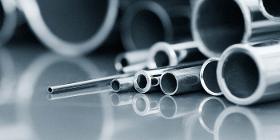
AMETEK SPECIALTY METAL PRODUCTS
United States
316Ti (UNS S31635) is a titanium stabilised version of 316 molybdenum-bearing austenitic stainless steel. The 316 alloys are more resistant to general corrosion and pitting/crevice corrosion than the conventional chromium-nickel austenitic stainless steels such as 304. They also offer higher creep, stress-rupture and tensile strength at elevated temperature. High carbon Alloy 316 stainless steel can be susceptible to sensitisation, the formation of grain boundary chromium carbides at temperatures between approximately 900 and 1500°F (425 to 815°C) which can result in intergranular corrosion. Resistance to sensitisation is achieved in Alloy 316Ti with titanium additions to stabilise the structure against chromium carbide precipitation, which is the source of sensitisation. This stabilisation is achieved by an intermediate temperature heat treatment, during which the titanium reacts with carbon to form titanium carbides. Please note that we have a minimum order value of £10,000.
Request for a quote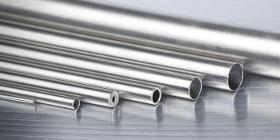
AMETEK SPECIALTY METAL PRODUCTS
United States
Because of its strength, unique density and corrosion resistance, titanium has found applications in many industries. For high quality tubing products, it’s often a better substance to use than competing materials like stainless steels or super alloys. Titanium tubes are light weight and exceptionally corrosion and heat resistantThe density of titanium is about 60 per cent of that of steel- or nickel-based alloys giving significant weight savings in aerospace structures. The tensile strength is better than that of austenitic or ferritic stainless steels. Titanium is exceptionally corrosion resistant and exceeds the resistance of stainless steels in most environments. The metal is non-magnetic too, and has good heat transfer properties, with a melting point higher than steel alloys. Titanium is easily worked. Please note that we have a minimum order value of £10,000.
Request for a quote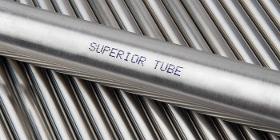
AMETEK SPECIALTY METAL PRODUCTS
United States
The welding process is one of the core ways in which we manufacture precision tubes. Our high-quality tubing starts off as a flat strip of metal. The strip is formed into a tube through a series of rollers and the join, also called the seam, is then welded together. Welded Processes Special non-destructive testing methods – including eddy current, ultrasonic and pressure testing - are used to ensure a consistent weld. Just like with seamless manufacturing, welded tubes can be drawn down by plug drawing or sinking. This method can be used to create very long lengths of coiled tube, these can also be measured during coiling using a laser measurement. The main welded tube manufacturing processes used are strip welding and cold drawing, but other important processes in between, or at the end of the drawing process, include Please note that we have a minimum order value of £10,000.
Request for a quote
AMETEK SPECIALTY METAL PRODUCTS
United States
The microstructures inside duplex stainless steels are approximately 50 per cent austenite and 50 per cent ferrite, and consequently duplex products share the physical properties of both ferritic and austenitic grades. Duplex stainless steels are resistant to the cracking caused by chloride stress corrosion in austenitic grades, and have improved resistance to localised corrosion. This family of stainless steels has roughly twice the yield strength of their counterpart austenitic grades . Higher hardness values provide better wear resistance for high precision tubes. Duplex stainless steel tubes have high hardness and wear resistance propertiesDuplex steels are easily welded and formed, similar to austenitic grades. Depending on chromium, nickel and molybdenum content, duplex stainless steels are divided into four main categories: lean duplex, duplex, super duplex and hyper duplex. Please note that we have a minimum order value of £10,000.
Request for a quote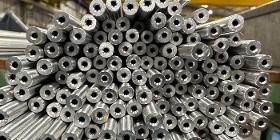
AMETEK SPECIALTY METAL PRODUCTS
United States
Alloy 825 (UNS N08825) is an austenitic nickel-iron-chromium alloy with additions of molybdenum, copper and titanium. It was developed to provide exceptional corrosion resistance in both oxidizing and reducing environments. The alloy is resistant to chloride stress-corrosion cracking and pitting. The addition of titanium stabilizes Alloy 825 against sensitization in the as-welded condition making the alloy resistant to intergranular attack after exposure to temperatures in a range that would sensitize unstabilized stainless steels. The fabrication of Alloy 825 is typical of nickel-base alloys, with material being readily formable and weldable by a variety of techniques Please note that we have a minimum order value of £10,000.
Request for a quote
AMETEK SPECIALTY METAL PRODUCTS
United States
Alloy 800, 800H, and 800HT are nickel-iron-chromium alloys with good strength and excellent resistance to oxidation and carburization in high-temperature exposure. These nickel steel alloys are identical except for the higher level of carbon in alloy 800H/HT and the addition of up to 1.20 percent aluminium and titanium in alloy 800HT. Alloy 800 was the first of these alloys and it was slightly modified into Alloy 800H. This modification was to control carbon (.05-.10%) and grain size to optimize stress rupture properties. In heat treatment applications Alloy 800HT has further modifications to the combined titanium and aluminium levels (.85-1.20%) to ensure optimum high temperature properties. Alloy 800H/HT was intended for high temperature structural applications. The nickel content makes the alloys highly resistant to both carborisation and to embrittlement from precipitation of sigma phase. Please note that we have a minimum order value of £10,000.
Request for a quote
AMETEK SPECIALTY METAL PRODUCTS
United States
Alloy 690 is a high-chromium nickel alloy having excellent resistance to many corrosive aqueous media and hightemperature atmospheres. The alloy’s high chromium content gives it excellent resistance to caturisation, metal dusting, oxidation and sulfidation at high temperature. In addition to its corrosion resistance, alloy 690 has high strength, good metallurgical stability, and favorable fabrication characteristics. Please note that we have a minimum order value of £10,000.
Request for a quote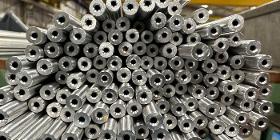
AMETEK SPECIALTY METAL PRODUCTS
United States
Alloy 600 is a nickel-chromium alloy designed for use from cryogenic to elevated temperatures in the range of 2000°F (1093°C). The high nickel content of the alloy enables it to retain considerable resistance under reducing conditions and makes it resistant to corrosion by a number of organic and inorganic compounds. The nickel content gives it excellent resistance to chloride-ion stress-corrosion cracking and also provides excellent resistance to alkaline solutions. Its chromium content gives the alloy resistance to sulphur compounds and various oxidizing environments. In strong oxidizing solutions like hot, concentrated nitric acid Alloy 600 has poor resistance. Alloy 600 is relatively un-attacked by the majority of neutral and alkaline salt solutions and is used in some caustic environments. The alloy resists steam and mixtures of steam, air and carbon dioxide. Please note that we have a minimum order value of £10,000.
Request for a quote
AMETEK SPECIALTY METAL PRODUCTS
United States
Alloy 400 (UNS N04400) is a solid-solution Nickel/Copper alloy that can be hardened only by cold working. It has reasonable strength and toughness over a wide temperature range and excellent resistance to many corrosive environments. Alloy 400 is widely used in many fields, especially marine and chemical processing. Typical applications are valves and pumps; pump and propeller shafts; marine fixtures and fasteners; electrical and electronic components; springs; chemical processing equipment; gasoline and fresh water tanks; crude petroleum stills, process vessels and piping; boiler feedwater heaters and other heat exchangers; and deaerating heaters. Please note that we have a minimum order value of £10,000.
Request for a quote
AMETEK SPECIALTY METAL PRODUCTS
United States
The chemically stable and high-temperature resistant nickel-chromium-molybdenum alloy 2.4605 (alloy 59) is mainly used in the chemical industry, flue gas desulphurisation plants, paper industry. Alloy 59 is a nickel-chromium-molybdenum alloy with excellent corrosion resistance and high mechanical strength. The alloy has excellent resistance to both oxidizing and reducing media, and possesses superior resistance to chloride pitting and stress corrosion cracking. The alloy is widely used in the most severe environments. Some applications include: flue gas scrubber components, bleach plant and digester components for the pulp and paper industry, sour gas handling equipment, sulfuric acid coolers, waste incinerators and seawater equipment. Please note that we have a minimum order value of £10,000.
Request for a quote
AMETEK SPECIALTY METAL PRODUCTS
United States
UNS NO8904, commonly known as 904L, is a low carbon high alloy austenitic stainless steel which is widely used in applications where the corrosion properties of AISI 316L and AISI 317L are not adequate. The addition of copper to this grade gives it corrosion resistant properties superior to the conventional chrome nickel stainless steels, in particular to sulphuric, phosphoric and acetic acids. However, there is limited use with hydrochloric acids. It also has a high resistance to pitting in chloride solutions, a high resistance to both crevice and stress corrosion cracking. Alloy 904L performs better than other austenitic stainless steels due to the higher alloying of nickel and molybdenum. The grade is non-magnetic in all conditions and has excellent formability and weldability. The austenitic structure also gives this grade excellent toughness, even down to cryogenic temperatures. Please note that we have a minimum order value of £10,000.
Request for a quote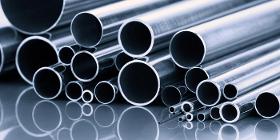
AMETEK SPECIALTY METAL PRODUCTS
United States
Surgical Implant 316L is a double melted stainless steel, regarded as a medical grade, this stainless steel is melted to achieve high levels of purity and cleanliness. It has excellent resistance to both general and intergranular corrosion, and pitting and crevice corrosion. The double melting allows for superior surface finish. Surgical implant 316L Stainless Steel is our most commonly sold medical stainless steel. Beyond removing impurities, this process, in combination with the unique nickel and chromium content of 316, tends to facilitate the formation of the surface chromium oxide layer that makes stainless steel corrosion resistant. There is some belief that surgical implant 316L forms a more substantial surface layer, and that this plays a strong role in protecting the host body from reactions to the nickel content of the material. Please note that we have a minimum order value of £10,000.
Request for a quote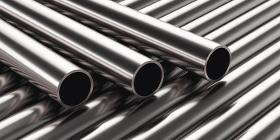
AMETEK SPECIALTY METAL PRODUCTS
United States
Ti 6Al/4V (Titanium Grade 5) is the most widely used of all the alpha-beta titanium alloys accounting for more than 50% of total titanium usuage. It is typically used in the annealed condition, at service temperatures through 400°C (750°F). Ti 6Al/4V is welded with matching or with ELI filler wire. Ti 6Al/4V is significantly stronger than commercially pure titanium while having the same stiffness and thermal properties excluding thermal conductivity, which is about 60% lower in Grade 5 Ti than in CP Ti. Amongst its many advantages, it is heat treatable. This grade is an excellent combination of strength, corrosion resistance, weld and fabricability. In consequence, its uses are numerous such as for military aircraft or turbines. It is also used in surgical implants. Generally, it is used in applications up to 400°C to improve ductility and toughness in cold-worked condition. Please note that we have a minimum order value of £10,000.
Request for a quote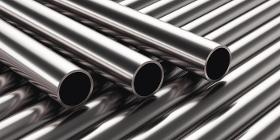
AMETEK SPECIALTY METAL PRODUCTS
United States
Ti 3AI/2.5V (Titanium Grade 9) alloy is a near alpha, alpha-beta alloy, sometimes referred to as “half-6-4.” It offers 20 to 50% higher tensile strength than the commercially pure titanium at room and elevated temperatures. It is much more amenable to cold working than Ti 6AI/4V alloy and can be cold worked 75 to 85% to result in moderately high strength and good ductility. Furthermore, it is weldable as the commercially pure grades and has excellent resistance to torsion and corrosion.Ti 6Al/4V is significantly stronger than commercially pure titanium while having the same stiffness and thermal properties excluding thermal conductivity, which is about 60% lower in Grade 5 Ti than in CP Ti. Amongst its many advantages, it is heat treatable. Please note that we have a minimum order value of £10,000.
Request for a quote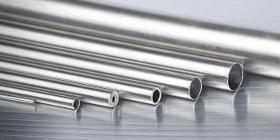
AMETEK SPECIALTY METAL PRODUCTS
United States
Commercially Pure (CP) titanium is an unalloyed titanium grade with a close-packed hexagonal (CPH) crystal structure at room temperature known as alpha phase structure. It has good formability, weldability, ductility, and corrosion resistance combined with moderate strength. Grade 2 titanium has slightly increased higher mechanical properties when compared to Grade 1. It is used principally in aerospace, automotive, chemical plants, marine environments, architecture structures & medical applications. Please note that we have a minimum order value of £10,000.
Request for a quote
AMETEK SPECIALTY METAL PRODUCTS
United States
347 (UNS S34700/1.4550) is a fully austenitic niobium stabilised stainless steel. The addition of Niobium reduces the creation of carbide precipitation in service between 430 to 900 degrees C and during welding processes and increases the mechanical strength of the material. This grade has good resistance to oxidation and corrosion along with good creep strength and can be used at temperatures where carbide precipitation may occur in non-stabilised grades e.g., 304. It is used principally in aerospace exhaust manifolds and engine components, chemical processing equipment running at high temperatures and in nuclear processing piping. Please note that we have a minimum order value of £10,000.
Request for a quoteDo you sell or make similar products?
Sign up to europages and have your products listed
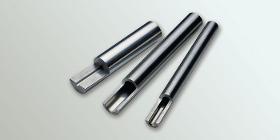
AMETEK SPECIALTY METAL PRODUCTS
United States
Superior Tube is committed to improving healthcare options for patients, and to helping surgeons save lives. As such, we manufacture a range of specialized welded and seamless tubing products for various areas of the medical device industry, including cardiac stents. Stents are small, expandable tubes, usually made of metal mesh, and are used to treat narrowed or weakened arteries. In patients with coronary heart disease, stents are implanted in order to open narrowed arteries during a procedure called percutaneous coronary intervention, or angioplasty. Heart stents can also help relieve chest pain and aid in the prevention of heart attacks. Ever since our tubing was used in the earliest cardiac stent implants in 1987, Superior Tube has been an industry leader in the manufacture of implant grade tubing for both coronary and peripheral stents. Please note that we have a minimum order value of £10,000.
Request for a quote
AMETEK SPECIALTY METAL PRODUCTS
United States
Superior Tube Co. supplies above industry standard quality high performance used in the manufacturing of liquid and gas chromatography. High Performance Liquid Chromatography High performance liquid chromatography (HPLC) is used to analyze chemicals in both research and industrial processing. It’s an application that requires precision tubing, which is resistant to high temperatures, pressures and corrosion. For many years, Superior Tube has supplied tubes made from corrosion resistant austenitic, stainless steel and nickel alloys for a range of HPLC equipment. The tubing is used for the manufacturing of the columns in chromatography machines. This application requires exceptional inside diameter condition and overall tube strength to withstand the pressure involved when pumping liquids or gases through the column in order to extract samples for chemical analysis. Please note that we have a minimum order value of £10,000.
Request for a quote
AMETEK SPECIALTY METAL PRODUCTS
United States
Customers in aerospace, oil and gas, chemical processing and other industries all rely on Superior Tube to supply precision thin wall tubing which they use to make bellows and convoluted tubing for a variety of applications. Our convoluting grade tubes are made from several alloys such as Inconel 625 and stainless steel 321. The tubes are then hydro or mechanically formed into flexible hoses, which are often used to transport fluids and gases in various industries. Superior currently produces bellows and convoluting grade tubing from 1.0” in outside diameter down to under .250” OD with wall thickness as light as .003”. If you have demand within or outside of this range, please contact us so we can provide a solution. Please note that we have a minimum order value of £10,000.
Request for a quote
AMETEK SPECIALTY METAL PRODUCTS
United States
Durability and corrosive resistance are key criteria when it comes to precision thin wall tubing for industrial condensers. The tube mill at Superior Tube more than meets that requirement, and we supply products to a range of leading engineering companies. In the energy sector, our high quality stainless steel and nickel alloy condenser tubes are used for the cooling, heating or re-heating of fluids or gases within steam turbines that generate electricity. Condenser tubing products can be purchased from Superior Tube as seamless, welded or welded drawn tubes in a multitude of sizes ranging from 0.010” OD to 1.500” OD with wall thickness as light as .003” Please note that we have a minimum order value of £10,000.
Request for a quote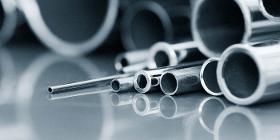
AMETEK SPECIALTY METAL PRODUCTS
United States
Grade 316 is the standard molybdenum-bearing grade, second inoverall volume production to 304 amongst the austenitic stainless steels. The molybdenum gives 316 better overall corrosion resistant properties than Grade 304, particularly higher resistance to pitting and crevice corrosion in chloride environments. Grade 316L, the low carbon version of 316 and has very high immunity from sensitization (grain boundary carbide precipitation). It is extensivly used in the oil and gas and chemical industries for its cost effective corrosion resistance and ease of fabrication. There is commonly no appreciable price difference between 316 and 316L stainless steel. The austenitic structure also gives these grades excellent toughness, even down to cryogenic temperatures. Compared to chromium-nickel austenitic stainless steels, 316L stainless steel offers higher creep, stress to rupture and tensile strength at elevated temperatures. Please note that we have a minimum order value of £10,000.
Request for a quote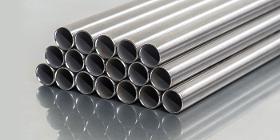
AMETEK SPECIALTY METAL PRODUCTS
United States
The high precision seamless tubes manufactured at Fine Tubes begin their journey as seamless tube extrusions, in a range of different sizes. This material is reduced in size several times until it gradually reaches the exact specifications our customers require. Each time we perform a reduction process, the tube needs to be cut, cleaned and heat treated before the next one can commence. Please note that we have a minimum order value of £10,000.
Request for a quote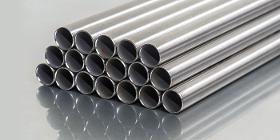
AMETEK SPECIALTY METAL PRODUCTS
United States
Grade 316 is the standard molybdenum-bearing grade, second in overall volume production to 304 amongst the austenitic stainless steels. The molybdenum gives 316 better overall corrosion resistant properties than Grade 304, particularly higher resistance to pitting and crevice corrosion in chloride environments. Grade 316L, the low carbon version of 316 and has very high immunity from sensitization (grain boundary carbide precipitation). It is extensively used in the oil and gas and chemical industries for its cost effective corrosion resistance and ease of fabrication. There is commonly no appreciable price difference between 316 and 316L stainless steel. The austenitic structure also gives these grades excellent toughness, even down to cryogenic temperatures. Compared to chromium-nickel austenitic stainless steels, 316L stainless steel offers higher creep, stress to rupture and tensile strength at elevated temperatures. Please note that we have a minimum order value of £10,000.
Request for a quote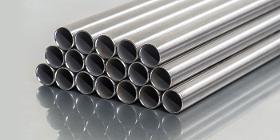
AMETEK SPECIALTY METAL PRODUCTS
United States
Alloys 304 (S30400) and 304L (S30403) stainless steels are variations of the 18 percent chromium – 8 percent nickel austenitic alloy, the most familiar and most frequently used alloy in the stainless steel family. High strength, excellent corrosion resistance and minimized carbon content make Alloy 304 and 304L Stainless Steels useful for applications where welding is required. Uses include architectural mouldings and trim, welded components of chemical, textile, paper, pharmaceutical and chemical industry processing equipment. Other advantages are its resistance to oxidation, excellent formability, ease of fabrication and cleaning, excellent strength to weight ratio and good toughness at cryogenic temperatures. Please note that we have a minimum order value of £10,000.
Request for a quote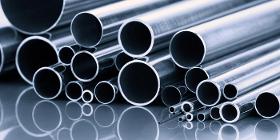
AMETEK SPECIALTY METAL PRODUCTS
United States
6 Mo (UNS S31254) is a super austenitic stainless steel with a high level of molybdenum and nitrogen, providing high resistance to pitting and crevice corrosion as well as high strength compared with conventional austenitic stainless steels such as 316L. The alloy can provide excellent resistance to stress corrosion cracking allowing tube cold formingand may be used without the necessity to re-anneal at testing up to 120°C. Please note that we have a minimum order value of £10,000.
Request for a quote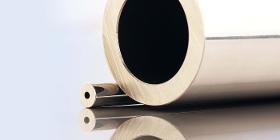
AMETEK SPECIALTY METAL PRODUCTS
United States
We deliver precision tubes specially engineered for aerospace engines that perform in the most extreme pressures and temperatures. Trusted by Major Engine OEMs Our aerospace engine tubes are trusted by major OEMs to operate in a variety of critical aircraft engine systems including fuel delivery, fire suppression, thrust reverser, drain lines, and bleed air systems. Please note that we have a minimum order value of £10,000.
Request for a quote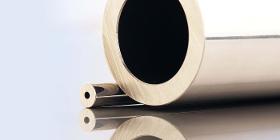
AMETEK SPECIALTY METAL PRODUCTS
United States
Fine Tubes leads the manufacture of precision tubes required in the fabrication of shell and tube heat exchangers. Our heat exchanger tubes are used for the cooling, heating, or re-heating of fluids, gases, or air in a diverse range of industries. Alloys Fine Tubes heat exchanger products are produced as seamless, welded or welded redrawn tubes in the following materials nickel alloys, stainless steels, duplex, super duplex. Please note that we have a minimum order value of £10,000.
Request for a quote
AMETEK SPECIALTY METAL PRODUCTS
United States
Major players in both the aerospace and nuclear power industries rely on Superior Tube for precision tubing to protect their control systems and instrumentation. Meanwhile, control and measuring devices critical to the safe functioning of nuclear reactors also require our high quality tubes. Within reactor cores, our instrumentation and control tubing encases equipment for monitoring various factors such as pressure, temperature, density differences and fuel burn up rates. It’s an extremely demanding environment where durability and reliability are absolutely critical. Superior Tube supplies instrumentation tubing in straight and coiled tube forms. The most common materials used are special grades of stainless steel and nickel alloys. Superior currently produces instrumentation tubing from up to 1.5” in outside diameter down to less than .020” OD. Please note that we have a minimum order value of £10,000.
Request for a quoteResults for
Precision tubes - Import exportNumber of results
35 ProductsCountries
Company type